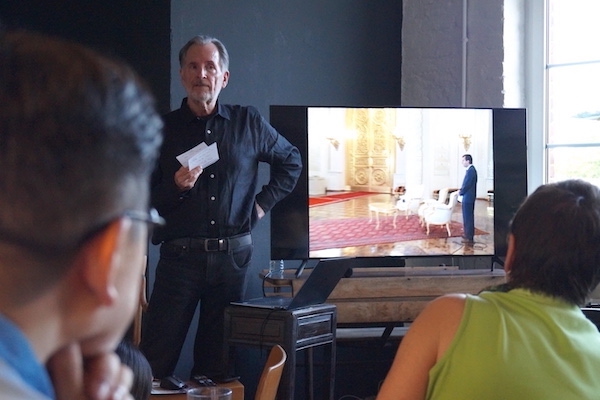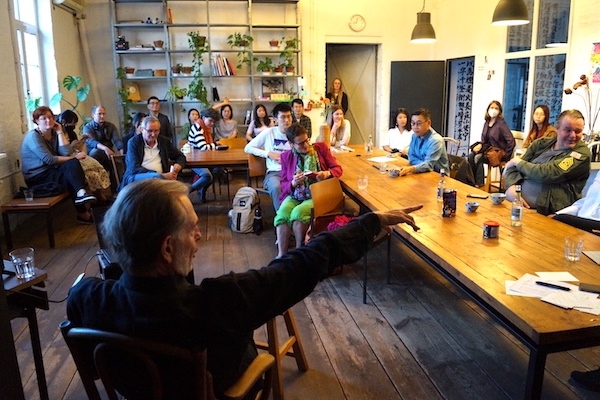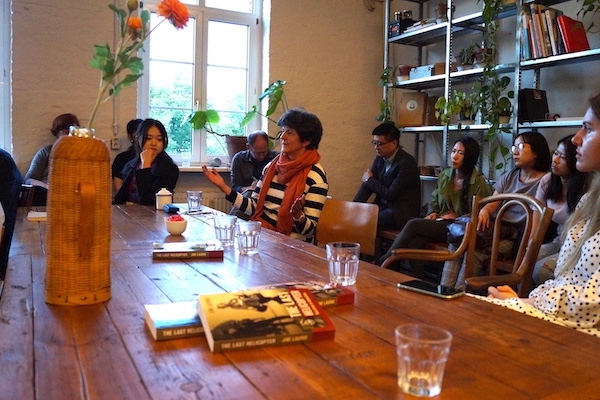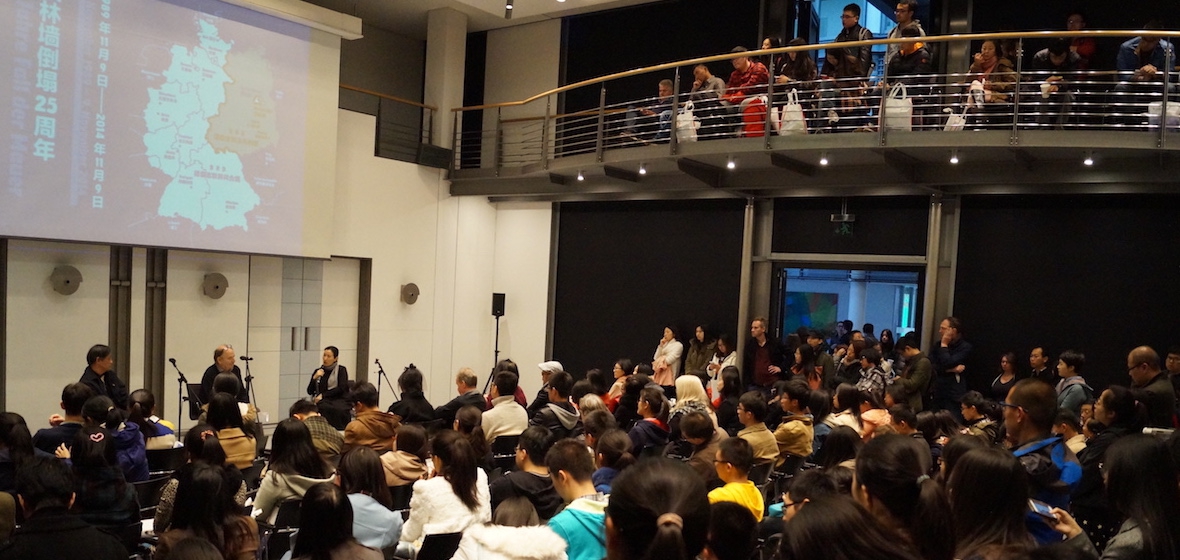回顾:
Jim Laurie: China and the World – a Five Decade Perspective

On 9th July 2022 the German-Chinese Media Network welcomed veteran China correspondent Jim Laurie in Berlin where he presented a very personal and insightful retrospective on his decades-long China experience and, against this backdrop, gave an assessment of the current state of sino-american relations.
There have been times when Sino-American relations were better. And those were not so long ago, as Jim Laurie made clear at the beginning of his talk with the help of opinion poll statistics. In 2010, US Americans who had an unfavourable image of China were still a minority: 36 percent. Today, they are the vast majority, with 82 percent – an "incredible change of attitude towards China" in Laurie's view.
From his decades-long experience as a reporter and correspondent in the Middle Kingdom, Laurie described a few scenes that, in his view, represent the "honeymoon years" between the USA and China. One of them took place in 1979, Laurie was granted a TV interview with Deng Xiaoping. One question that the reporter was burning to know at the time: Would China use force to get Taiwan back? Before Deng answered (yes, China probably would if necessary), he paused for a while – and spat into a spittoon. The scene remained untelevised for decades (until 2017) at the request of the Chinese leadership. This, Laurie said, was probably the first consensual media censorship in Chinese-American history.
The honeymoon period ended in 1989 when the Tiananmen Square democracy demonstration in Beijing was violently put down. Jim Laurie, China correspondent at that time, visited the city's hospitals where the injured and dead were taken, some by pedicabs. "I knew war from Vietnam," Laurie said. "And this was war, in the streets of Beijing." While there were no deaths in Tiananmen Square itself, probably hundreds were killed in the surrounding streets.
A few years after the massacre, China opened up to the world again. Relations with the USA and the West normalised. Since the 2010s, however, they have deteriorated again, which Laurie believes is not least due to China's wolf-warrior attitude on the world political stage: a very aggressive demeanour coupled with nationalistic tones.
This trend towards more nationalism and aggressiveness Laurie also noticed within the US. Here, too, black-and-white thinking is on the rise. It is increasingly difficult to adopt a differentiated attitude towards China. "I'm still a believer in dialogue, discourse and engagement with China," says Laurie. But that makes him a blatant outsider in Washington, his home town. "It feels a bit like a new Cold War."
Laurie assumes that one reason for the increasingly poisoned atmosphere is the social media, where loud, aggressive voices are echoed and moderate ones are marginalised – in China as well as in Western societies. As an example, he cited the assassination of former Japanese leader Shinzo Abe the day before the Berlin event, which was celebrated by some people on Chinese social media.
Will China, in line with its increasingly aggressive international posture, actually attack Taiwan at some point? Laurie thinks this is possible, but believes that he personally will not live to see it. Although in his view China would now be capable of a military invasion of Taiwan – unlike until a few years ago – such an invasion would come with extremely high military, political and economic costs. "Soberly viewed, therefore, the Chinese leadership would not do it."
Laurie hopes – and is confident, he stresses – that despite the current difficult global political situation, those with a cool head will ultimately prevail and thus avert both an invasion of Taiwan and a Sino-American war.
This event was co-hosted by the German-Chinese Media Network and C-Space.
Text & photos: Markus Wanzeck
